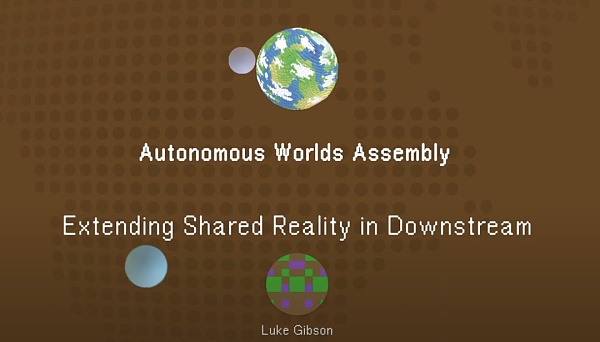
Hi , I'm Luke Gibson, one of the co-founders of Playmint.
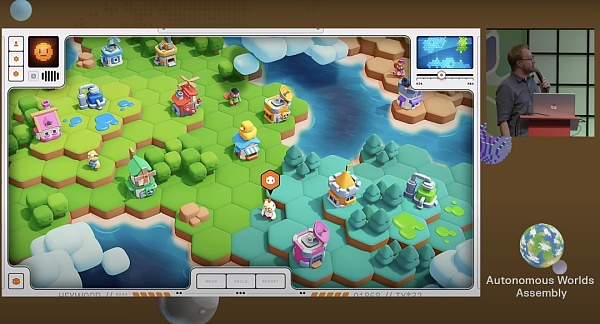
We are currently developing a game called Downstream. This is what it will look like after it is completed, but the current appearance of the game is slightly different. Mainly we don’t want users to mistakenly think that the game has been developed, so we deliberately keep it low-key.
Downstream is a post-singularity civilization simulator, I will explain further what this means later.
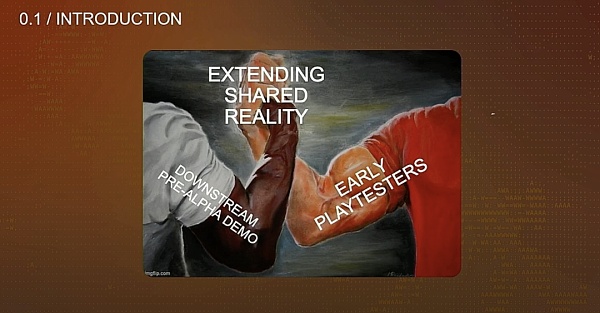
We're still very early in the development process, but one thing you can already do is extend each other's shared reality.
One of Playment's goals is to create a game that allows players to work together to build new things that we can't even imagine.
People in the game industry will say: "Oh, you mean social UGC (User Generated Content) games like Roblox?" And people in the encryption industry will People will say: "Oh, you mean permissionless composability like Loot?"

Although we also appreciate the above two concepts, we believe that they still cannot fully reflect our views. So today I'm going to talk about the decisions we've made, or are making, as we try to figure out how to expand shared reality.
01. Problems with social UGC games
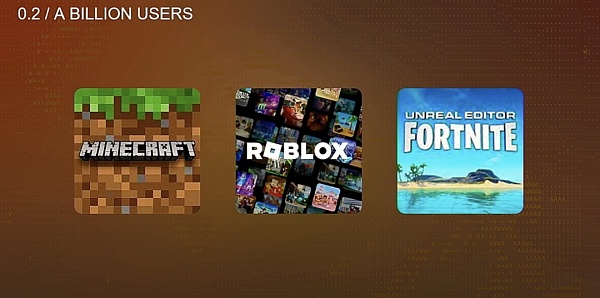
The top three social UGC games currently on the market (Minecraft, Roblox and Fortnite ) is about to have one billion users, which is a very large number of users.
Although it has not yet reached the scale of billions of users of social media applications such as TikTok and Instagram, the number of users of these games is often smaller, so the The scale is actually quite impressive.
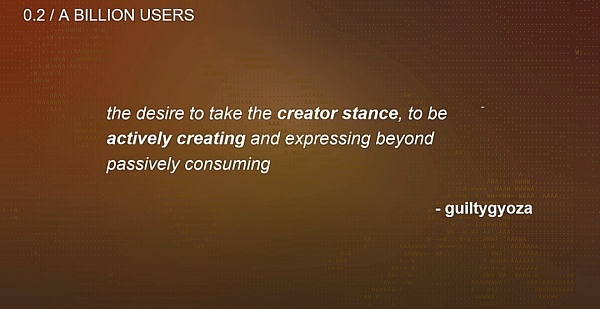
A more optimistic view of this, as guiltygyoza (founder of Topology) said: "This shows that people prefer to stand in the perspective of the creator, actively create and express, rather than passively consume."
But a relatively pessimistic view is that the content consumed by most people only comes from a small number of users, and the mainstream behavior on these platforms is still consumption rather than creation.
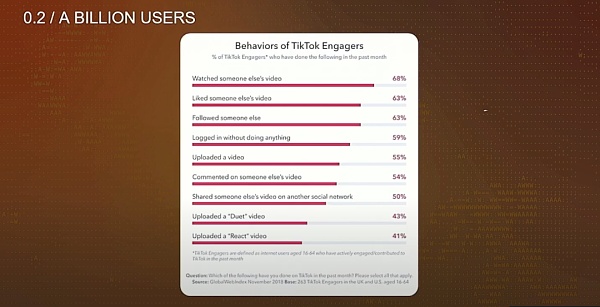
But these criticisms are not the whole story. Indeed, the vast majority of users of social platforms have created content at least once. So, most users have tried to become a creator.
But the key problem with current social UGC games is that players can only create content that has been preset by game developers. As for so-called shared spaces, they are actually far less “shared” than people expect.
02. Realistic obstacles to achieving composability
So what about permissionless composability?
As Agnes said, people are increasingly inclined to believe that on-chain games have permissionless composability by default. Not only can people create new content on your game, but no one else can restrict their creation.
We even joke that we finally have the answer to "Can't developers do something?" and it's: "Yes, you can."
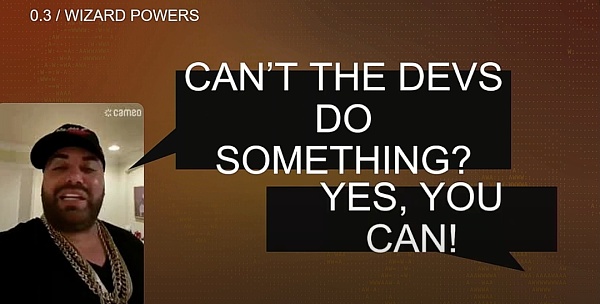
There are some great articles on this topic. I really like Guiltygyoza's "Composable Engineering" and Ronan's "Natural Composability in Autonomous World".
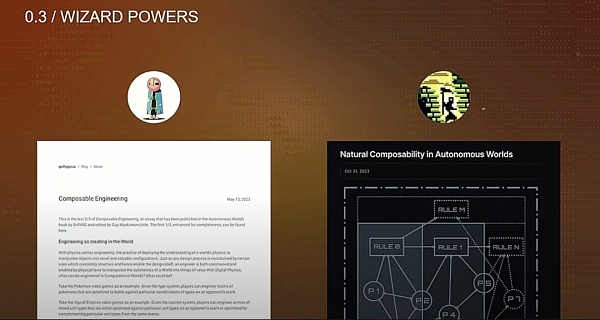
Loot community is the best proof that these are feasible. But there are currently barriers to building on top of your product. Simply put, the threshold is too high and the incentives are too low.
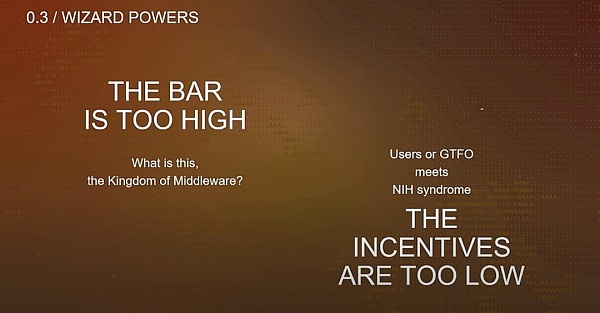
Can only engineers innovate further on existing products? Should users really be left to integrate disparate computing systems? Is this the so-called "middleware kingdom", which means over-reliance on middleware to achieve integration between different technologies?
At the same time, the incentive to do so is too low. So a lot of people say, "Well, if I can get more users by continuing to build the product based on composability, that's great. But if there aren't any users out there yet, instead of continuing to build based on composability, why not Make a product from scratch.”
So, while many believe the potential for permissionless composability is incredible, we believe the current incentives are still not enough.
03. We need democratized composability
Please imagine what it would be like if we had a billion "wizards" now, each with the ability to expand the real world they share with each other? Is this a game, a decentralized platform, or an autonomous world?
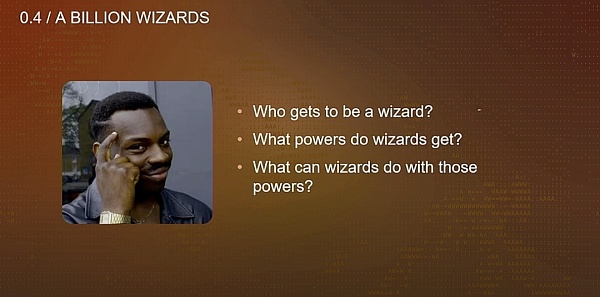
While we are not 100% sure, we are considering some key questions, which is: Who can become a "wizard"? What abilities do these "wizards" have? And what can these "wizards" do with these abilities?
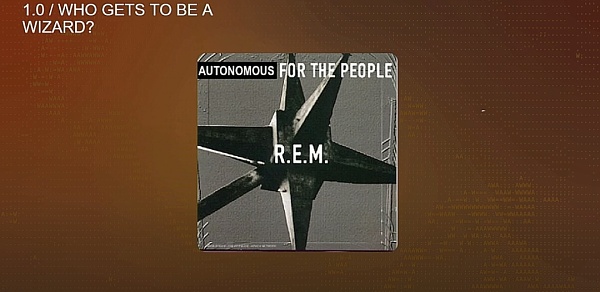
So, who can become a "wizard"? We certainly hope that everyone can have the ability to become a "wizard", not just developers. We want to democratize composability so that everyone has a chance to try it. This is a composability that belongs to the people.
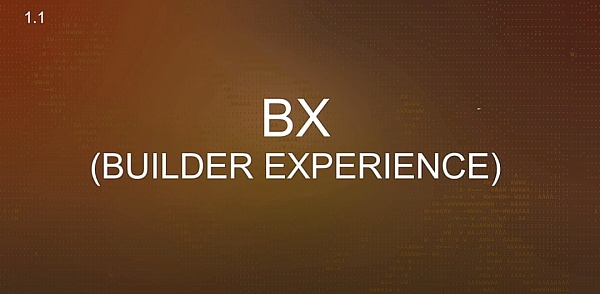
In fact, we wanted to design the expansion game itself as an organic part of the overall game experience, which led us to start discussing the importance of BX (Building Experience), that is, the builder experience.
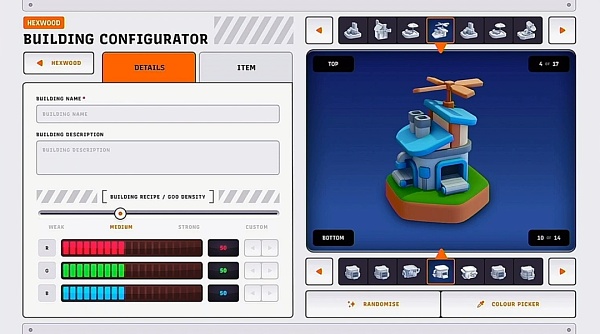
This triggered a series of thoughts for us. Featured here are our building fabrication tools. When you create a new type of building here, you are essentially deploying a smart contract, which allows anyone in the Downstream world to build the same building.
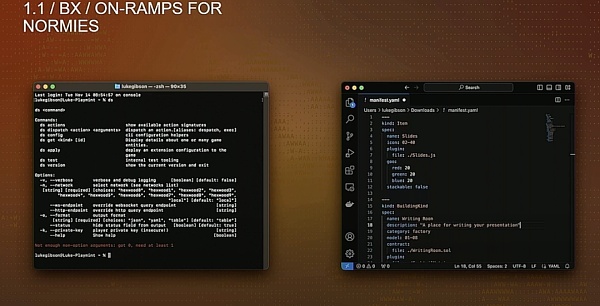
For engineers, we provide the use of command line tools and YAML (Yet Another Markup Language) configuration files; and for users with non-engineering backgrounds, we design an intuitive graphical user interface (GUI) to facilitate their use Perform operations.
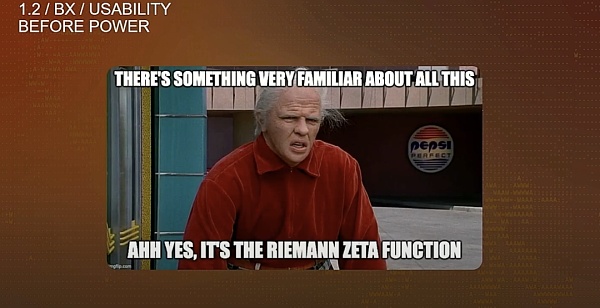
Therefore, we are also thinking deeply about how to improve the usability of the system. That's what I said, usability before power.
We want people to have the power to change the way things work, so the system needs to work in a way that people can understand.
Therefore the design styles of skeuomorphism and metaphors will play an important role. Digital physics becomes easier for users to understand when it can find examples that correspond to real-world physics.
04. We are going to give the "wizard" the ability
So, what kind of abilities does it mean to be a wizard?

I mentioned before that online multiplayer games don't always provide the shared space they appear to be. As a practitioner from the traditional game industry, I feel it is necessary to point out that games are, to some extent, "cheating" to keep you entertained.
This is done because the original intention of the game is to make players happy. If you stop having fun, you stop playing and move on to something else. This is a very different setting from This Cursed Machine, a game in which the player is trapped in a device from which there is no escape.
Therefore, there is strong evolutionary pressure on game designers to either adjust the difficulty as much as possible to match the limits of your tolerance for frustration, or to simply throw it at you. Come to pleasure.
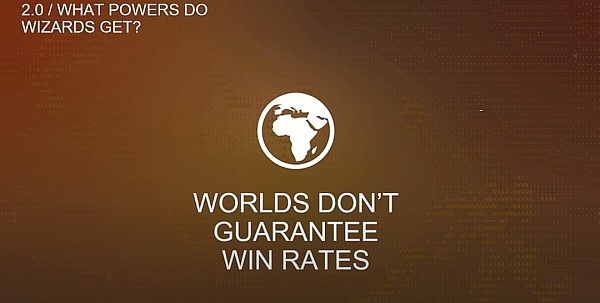
But a "World" doesn't guarantee you'll always win, right? This kind of benevolent manipulation is much more difficult to achieve in a shared space. While this design philosophy can provide the best experience for certain types of games, you don't want to just passively receive dopamine. Your goal is to become a real "wizard", isn't it?
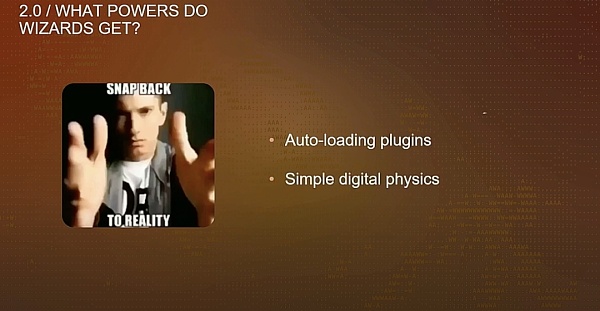
Therefore, our goal is to train you to become a powerful "wizard". To do this, we first need to implement a few key measures in the Downstream game, including automatically loading plugins and implementing simple digital physics rules.
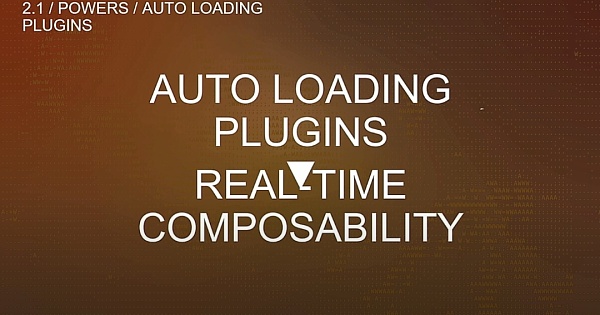
Auto-loading plug-ins allow many games to support expansion, but few allow players to expand a single shared reality space as they play, as we do, as if they were in the same virtual space Interaction is the same. This reflects our pursuit of game expansion - treating game expansion as part of the game experience.
With auto-loading plugins, once a player deploys a new building design, the design will immediately appear in the list of all player-buildable items. This is not only a manifestation of modularity, but also a real-time dynamic combination capability.
05. Digital Physics
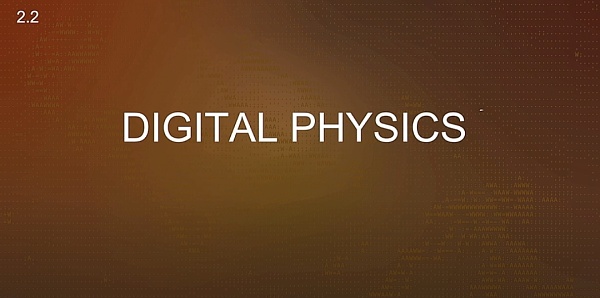
Next let’s talk about Digital Physics. Since you can implement custom logic into the architecture of Downstream games, this theoretically gives it huge potential.
But in fact, it is not easy for players to understand what they can do, and it is also difficult for players to troubleshoot without our help. So, what exactly is digital physics, and why can it help us?
As Justin said earlier today, digital physics is not just another trendy name for the rules of the game. guiltygyoza also emphasized that "with physics, engineering design can be carried out."
If the game sets some settings for what players can build, it is not completely free. Without a consistent ruleset, players may still feel like they are constrained to a deliberately designed track.
Digital physics builds rules into the game world, allowing people to create brand new things on this basis.
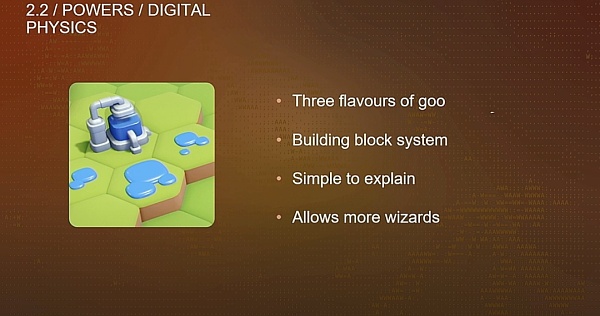
So we designed an atomic system that allows players to create new items from existing materials.
In Downstream, we designed three different Goo, which is similar to a basic building module system and represents a very basic digital physics. Learn form. This design is very beneficial to us because it gives more players the opportunity to become a "wizard".
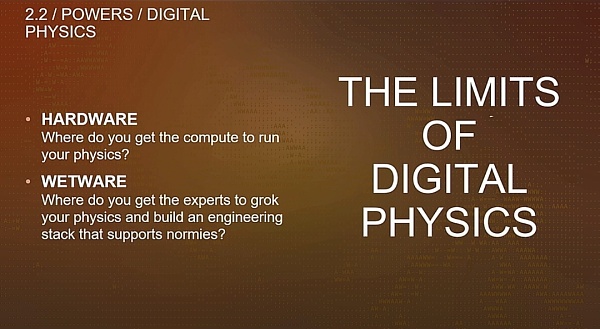
Digital physics, despite its potential, faces some inherent limitations. One criticism we encountered was, "The concept of building blocks is not new, why not try something more exciting and innovative?"
I'll keep it simple. To illustrate this point, it should be pointed out that hardware capabilities are a bottleneck. The more complex the underlying implementation of physical rules is, the more difficult it is to calculate them in real time.
Next let’s talk about “wetware” (Translator’s Note: wetware is composed of “hardware” and “software” ) refers to biological organizations such as the human brain that process information, here refers to digital physicists involved in the design of digital physics.).
If you get down to a very basic level of physics, you need physicists to help build the engineering foundations that people can develop further. We do not intend to delve into this complex area.
So, in 2023, when you develop games on the blockchain, you need to consider at which level of abstraction should you build your physics model?
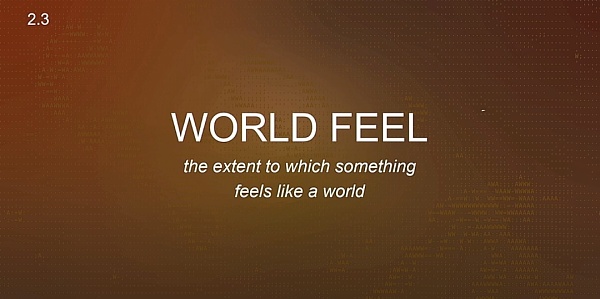
We believe that creating experiences that have a sense of the world is crucial. Successful abstract design can make players feel as if they are in another world, as Minecraft does by dividing the world into 1 meter by 1 meter blocks, which makes everyone agree that "this really feels like a world." world".
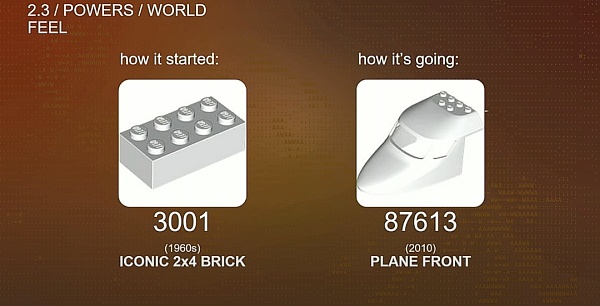
But even in a typically composable system like Lego, there's still a fair amount of arbitrariness. When it was born in the 1960s, it used the classic 2x4 brick design, but today's LEGO bricks look like this, a simple outer surface design. So why are systems becoming increasingly arbitrary and subjective?
Perhaps the ideal amount of arbitrariness that a system can contain does not have to be zero. So, while this may be a controversial point, systems designed with subjective intent may be more interesting to build than neutral systems that are optimized to give players more options.
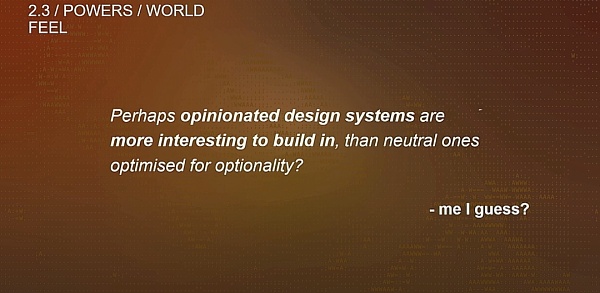
I think examples like "This Cursed Machine" prove this again. Would you rather build in a freely creative sandbox, or would you rather be a "Stump" (Translator's Note: Stump here is the setting of the player's identity in the game This Cursed Machine, which can be roughly understood as a world full of restricted environment)?
This leads to the focus of our current work: How should "wizards", that is, creators use their abilities? We are very proud of the systems we have developed so far that enable real-time composability. We can further enhance the game's physics system and better Builder Experience (BX).
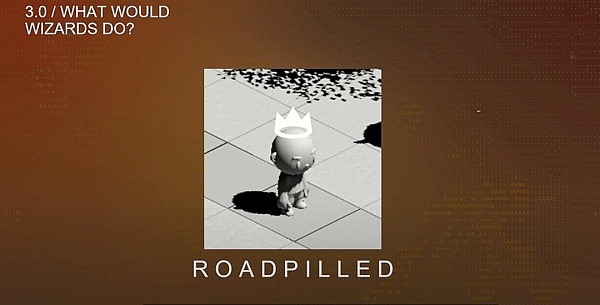
But we chose to focus on world building because we want to create an environment that encourages people to create. Taking Gaul as an example, the goal in this game is very intuitive, which is to build roads. That's what we're currently working on.
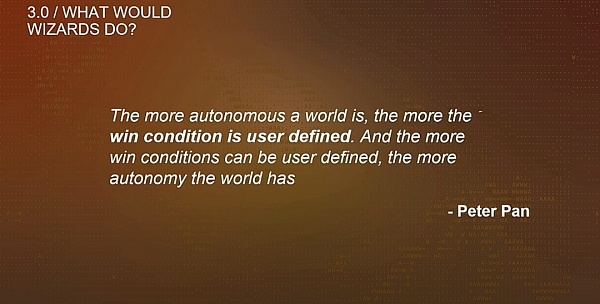
From another perspective, "The stronger the autonomy of a world, the more its victory conditions should be defined by players. In the same way, the more the victory conditions can be defined by players, the more autonomous the world will be. The stronger."
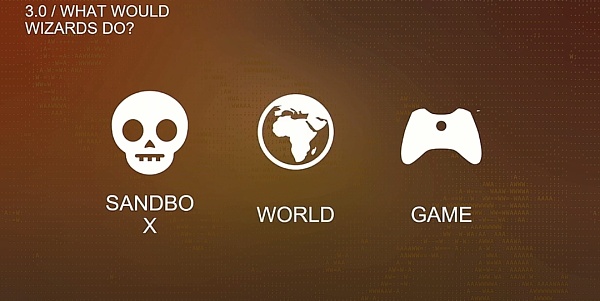
So, we need to achieve a balance between a sandbox for free exploration and a game with clear goals. This is the nature of the world we build.
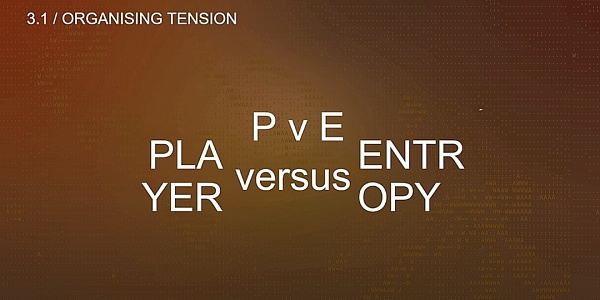
I'll skip the rest. In world building, PVE (player versus entropy) plays a key role. So, what chaos and disorder exists in your world? Thank you very much for listening.
 JinseFinance
JinseFinance
 JinseFinance
JinseFinance JinseFinance
JinseFinance JinseFinance
JinseFinance Others
Others decrypt
decrypt Cointelegraph
Cointelegraph Bitcoinist
Bitcoinist Cointelegraph
Cointelegraph Cointelegraph
Cointelegraph Cointelegraph
Cointelegraph